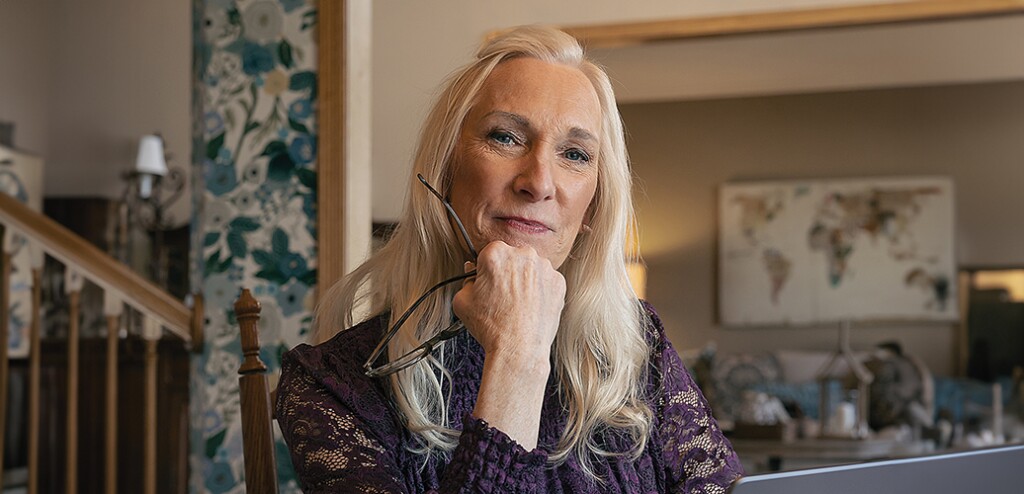Spending time running the family farm may have produced some of the fondest memories of your lifetime. And after decades of putting in hard work, sweat and love, you may be ready to hand over the job. It might be that you see retirement on the horizon, that you need to focus on your health or that you have other opportunities to pursue.
For many farm owners, this phase of life comes with emotional decisions—what's next for you, and how can you ensure your land and its operations stay in good hands? Estate planning for farmers often centers on finding the best way to transfer the family farm so that it feels equitable, both financially and emotionally, for you and future generations.
But it's not as easy as signing some pre-prepared paperwork. Let's go through the major steps of succession planning for your farm.
Why is estate planning important for farmers?
When a farm is a major part of your life, you already know that managing it well is important. Part of that is recognizing the advantages an
- Business continuity. With a plan in place, you can keep the farm running through the transfer process, which helps ensure operations and know-how pass easily to the next generation.
- Financial stability. You can feel more comfortable about passing along the farm equitably, minimizing economic disruptions and leaving everyone feeling more financially secure.
- Less family conflict. A farm transfer can be an emotional process. Documented and communicated succession plans can minimize hurt feelings and provide a clear understanding of roles.
- Tradition and a way of life. When you feel that farming is a vital part of your community and want it to remain a core value for your loved ones, estate planning can help you
keep the legacy going.
Without an estate plan in place, there are potential risks for your family and your farm, including:
- Business disruption. Uncertainty around ownership and long-term goals could result in financial decline and missed growth opportunities.
- Strained relationships. Without a communicated plan, your family may not understand what's in store for the farm or where they stand with their stake in it. The lack of clarity can potentially drive a wedge between you and them.
- Potential tax and legal complications. If there's no succession plan, your farm may go into probate. Or there could be settlement issues between family members. Both of these can be time-consuming and expensive.

Will & Estate Planning Guide
Why farm ownership transfer is more than a legal process
Being ready and willing to transfer the family farm is only part of the equation. The next step is identifying who will be the next owner.
To minimize potential family conflict, it can help to have open and honest conversations with your family and others with a stake in the farm about your vision for handing over management. Keep these ideas in mind while you're working out who could be the best fit:
- Interest and capability. Determine who has a genuine desire to run the farm and can do it well. If there are multiple possibilities, you may need to develop plans for each person and weigh them.
- Communication and collaboration. If you share your goals, hopes and concerns about the farm with others, you may be able to find out how their ideas match up with yours. It may work best for you to have everyone work together to reach a shared understanding.
It's possible you'll have only one candidate who's willing and perfect for the farm handover. That could make it easy to get right to business. But you may find yourself facing other scenarios.
What are my options if I have multiple heirs?
This may complicate determining the best way to transfer family farmland and assets. Some of your options may include:
- Dividing the property equally between your heirs and letting them do with it what they wish
- Giving your heirs equal interest in the farm without dividing the land
- Creating a plan where heirs can buy out others' interests over time
- Splitting various assets among heirs according to their interests
With multiple heirs, it's even more important to have a financial team of advisors willing to help you develop a plan, clearly document it and communicate it.
What to do if no heirs want the family farm
If no one in your family can or wants to take ownership of the farm, you're not out of options. A current employee, neighboring farmer or close family friend may be a possibility. A local young farmer program member may have an interest. Or you may decide it's best to sell to an outside third party.
Clarify your vision for the future of the family farm
As you're working out who's best to be next in line for operating the farm, make sure you align your plans with your priorities and goals. Plotting your ideal strategy can be complicated and emotional. Taking the time to think it through can provide you with some clarity and certainty, especially as you start to communicate your vision with your successor.
Consider these questions to get you started:
- What are my expectations for the farm going forward?
- What concessions or compromises am I willing or unwilling to make?
- Will transferring the farm help me reach my financial and retirement goals?
- What outcomes would be fair to those interested in the farm or those not interested in the farm?
You may want to leverage a team of experts as you work to make your plans solid—your financial advisor, estate planning attorney and accountant. They can offer valuable insights into the step-by-step process and any complex considerations your path may involve.
Start documenting your farm succession plans
There's no one-size-fits-all way to transfer the family farm, so it's helpful to document the process as you go. Here are a few places to start.
Take stock of assets
While good old-fashioned hard work keeps a farm running, there's also land, equipment and other property to consider. For some, the best way to transfer family farm assets and property equitably is by accounting for the value of the land, buildings and inventory.
That can help you determine the farm's value and give you a starting point for splitting up land or interests for your heirs.
Include your heirs
Once you've identified who'll be taking over the farm or have a stake in it, include them in the informal and formal parts of the planning and documentation processes. Talk with them about your financial plan and share your vision and values for the farm's future. Helping them feel like they're part of the process passes down vital insights about running the farm as well as your legacy of care for the land.
Work with your financial team
During the estate planning process, your team of financial experts can provide ongoing advice and support. They'll help you formalize your overall estate plan and create retirement, risk management and
How Thrivent can help with your farm estate planning goals
Succession and estate planning for farmers can be complex. A financial advisor can guide you through the transition process with the goal of fulfilling your vision for the future of the family farm. While Thrivent does not provide specific legal or tax advice, we can partner with you and your tax professional or attorney on a plan that works for your family.
Connect with a local







